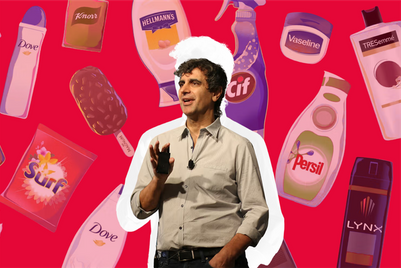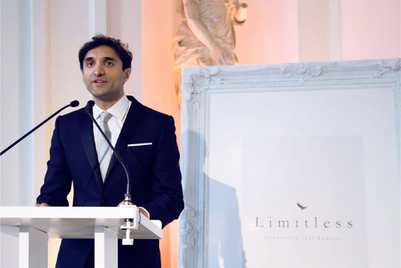
The deal makes Unilever the football club’s official "Personal Care and Laundry Partner" in Singapore, Malaysia, Indonesia, Vietnam, Philippines Thailand, Cambodia, Laos and Myanmar for a number of brands including Clear, Omo and Rexona. These brands will now carry the Manchester United crest on their packaging. Other activations under the partnership will roll out in January 2014 and continue through the year in a phased manner.
Beyond the crest, the deal also covers associations with current players, former players, coaches, coaching facilities, hospitality and management time from the club. Through the partnership, Unilever will also bring Manchester United Soccer Schools to each country. Unilever is also reportedly keen to extend this partnership to other countries in Asia.
The partnership will help cater to an increasingly important demographic for Unilever: Men. Male grooming continues to boom, but men are notoriously hard to reach. Hence Mindshare, Unilever’s media agency, recommended Unilever create a stronger link with one the demographic's biggest passions: football.
Mindshare prompted discussions with the English football club in June 2013 with the objective to help Unilever and its brands stand out.
“With Manchester United, we realised the opportunity to not just scale this up across countries but also to bring together multiple brands and categories to create Unilever’s largest sponsorship to date across Southeast Asia,” said Sudipto Roy, managing partner, client leadership and partnerships, APAC, at Mindshare.
Football is the most popular sport across the countries in the region, and the premier league has more than 130 million followers in Southeast Asia. Indonesia leads the way with 54.4 million fans, followed by Vietnam and Thailand with 26.4 million and 19.5 million fans, respectively. As such, these countries will get the biggest focus. Separate campaigns and activations will be designed for each unique market.
In addtion to men, Unilever is also interested in targeting children and their mums through its ‘dirt is good’ campaign, by encouraging children to play outdoors for their health and development. Peter Ter Kulve, president of Unilever, SEA and Australasia said mothers will also play a significant role in delivering results.
Unilever's competitor Procter & Gamble staked out mom territory with its ‘Thank you Mom’ campaign, which debuted at the 2012 London Olympic Games.


.jpg&h=334&w=500&q=100&v=20250320&c=1)

.jpg&h=334&w=500&q=100&v=20250320&c=1)

.jpg&h=334&w=500&q=100&v=20250320&c=1)

.jpeg&h=334&w=500&q=100&v=20250320&c=1)


.jpg&h=334&w=500&q=100&v=20250320&c=1)


.png&h=268&w=401&q=100&v=20250320&c=1)




.jpg&h=268&w=401&q=100&v=20250320&c=1)